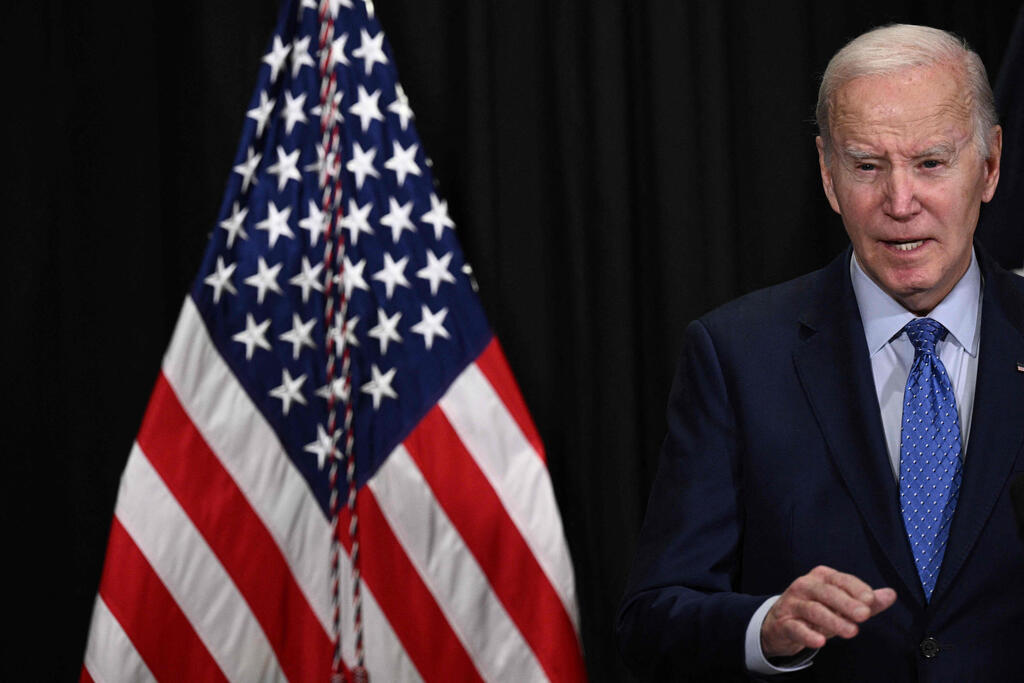Saudi Arabia, Egypt and the United Arab Emirates (UAE) have chosen not to join the multinational naval alliance led by the United States against Yemen’s Houthi rebels in the Red Sea, which was formed earlier this month.
More stories:
Saudi Arabia, a country that has fought against the Houthis in recent years, didn’t join the new alliance - against the backdrop of various reports that Riyadh was on the verge of signing a cease-fire agreement with the Iran-backed terrorist organization.
4 View gallery


UAE President Mohammed bin Zayed, Saudi Crown Prince Mohammed bin Salman, Egyptian President Abdel el-Sisi
(Photo: AP, Reuters, Reuters / Saudi Press Agency/Handout)
An Al Jazeera report published on Monday explored why countries that would benefit from the naval alliance are hesitant to join. It noted that while Bahrain did join, its role is expected to be symbolic and primarily focused on logistical support.
Saudi Arabia has been fighting against the Houthis in Yemen for years. In recent weeks, it was reported that negotiations for a cease-fire agreement between the two sides are underway and close to being complete. The UN Special Envoy to Yemen, Hans Grundberg, announced Sunday the Yemeni faction was willing to facilitate the UN roadmap for a solution to the crisis, including implementing a cease-fire in the country, improving living conditions and preparing to reinstate political policy.
The London-based Al-Araby Al-Jadeed newspaper reported Sunday that Saudi Arabia isn’t interested in taking part in the naval alliance because it wants to complete its deal with the Houthis, which is in its advanced stages. A few days ago, it was claimed that the agreement between Saudi Arabia and the Houthis was ready for signing.
Additionally, according to Al Jazeera, U.S. President Joe Biden’s administration sharply criticized Saudi Arabia for its conduct during the war it led against the Houthis in Yemen. According to the outlet, “Today, the United States is asking Saudi Arabia to participate in a new war in Yemen for Israel.”
According to Al Jazeera, the situation between Saudi Arabia and Yemen is now simmering down, especially following Chinese mediation between Riyadh and Tehran, the Houthis’ patrons. Joining the alliance with the U.S. would reignite the war and make Saudi Arabia a target for Houthi missiles.
The United Arab Emirates, according to Al Jazeera, has suffered greatly from the war in Yemen and does not want to take part in it at the moment. (The report said that even before the war in Gaza, the UAE announced that it was leaving the coalition, which already existed in the region and was established to protect commerce in the Arabian Gulf and the Red Sea from pirates and terrorist groups).
Egypt is deeply affected by the situation in the Bab-el-Mandeb Strait. Recent events and diversions of shipping routes by several major naval shipping companies have raised concerns in Cairo about serious economic impact. The threats in Bab el-Mandeb could affect the number of ships passing through the Suez Canal.
Egypt was supposed to be in favor of joining such an alliance from an economic perspective and for the sake of securing ships passing through the region. However, according to Al Jazeera, it chose to stay out because Egypt's main interest is to increase pressure on Israel to lift the blockade on Gaza in order to remove considerations for transferring Gazans to Sinai, an issue it fears could lead to the start of another war.
According to the Qatari outlet, Egypt sees the Houthis’ demand to allow medicine and food into Gaza and their commitment not to attack ships heading to Israel in return is also an Egyptian interest, as their main concern is the displacement of Palestinians in Gaza.
These three countries are also concerned about the coalition's connection to Israel and how their joining such an alliance will be viewed. Factions in the Arab world, especially those opposed to the coalition, argue the alliance was established to assist Israel primarily under the pretext of defending maritime routes.
Al Jazeera, among other outlets, clearly presents this claim. It states that "instead of Washington lifting the blockade on Gaza, it recruits countries to protect Israel and its maritime trade after the Houthis banned Israeli ships and vessels heading to Israeli ports from passing through the shipping route leading to the Red Sea."
According to Al Jazeera, this is another reason why countries like Egypt and Saudi Arabia choose not to join the alliance, as its main goal, according to the outlet, is to "recruit support for Israel." The Houthis, in a recent statement, tried to portray the U.S. as threatening navigation in the region and "arming the Red Sea."
Senior Huthi official Deif Allah al-Shami told the Qatari newspaper Al-Araby Al-Jadeed that the Houthi position on the alliance is clear: "Any alliance of this kind is aimed at defending Israeli ships, supporting Israel, and encouraging it to continue committing crimes in Gaza."
He added, "Even if the whole world united to deter us, it wouldn't work. As the coalition expands, so will our pool of targets. The Yemeni people have expressed their readiness to deal with any scenario."
He also noted that Saudi Arabia's absence from the alliance marks a positive turn and referred to the ongoing negotiations between the countries, indicating that neither Saudi Arabia nor the UAE is enthusiastic about entering a new military alliance, and that there is mutual distrust between the U.S. and Saudi Arabia.





